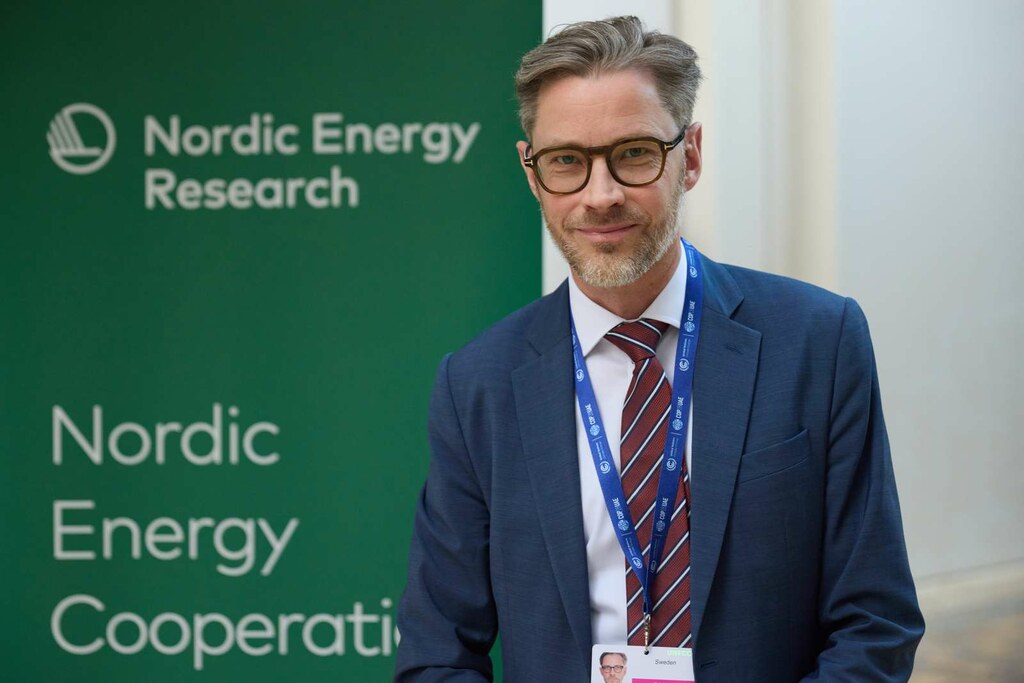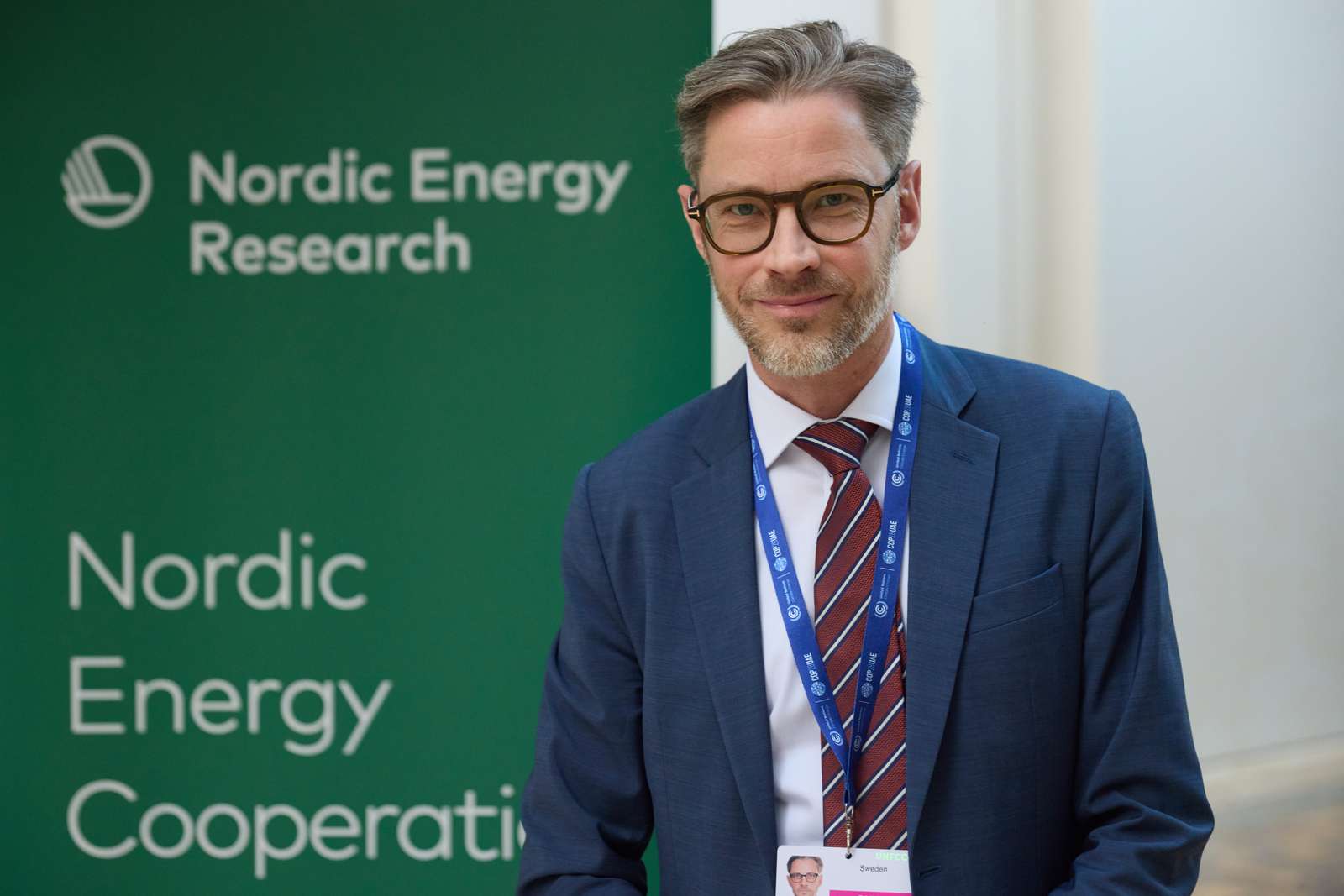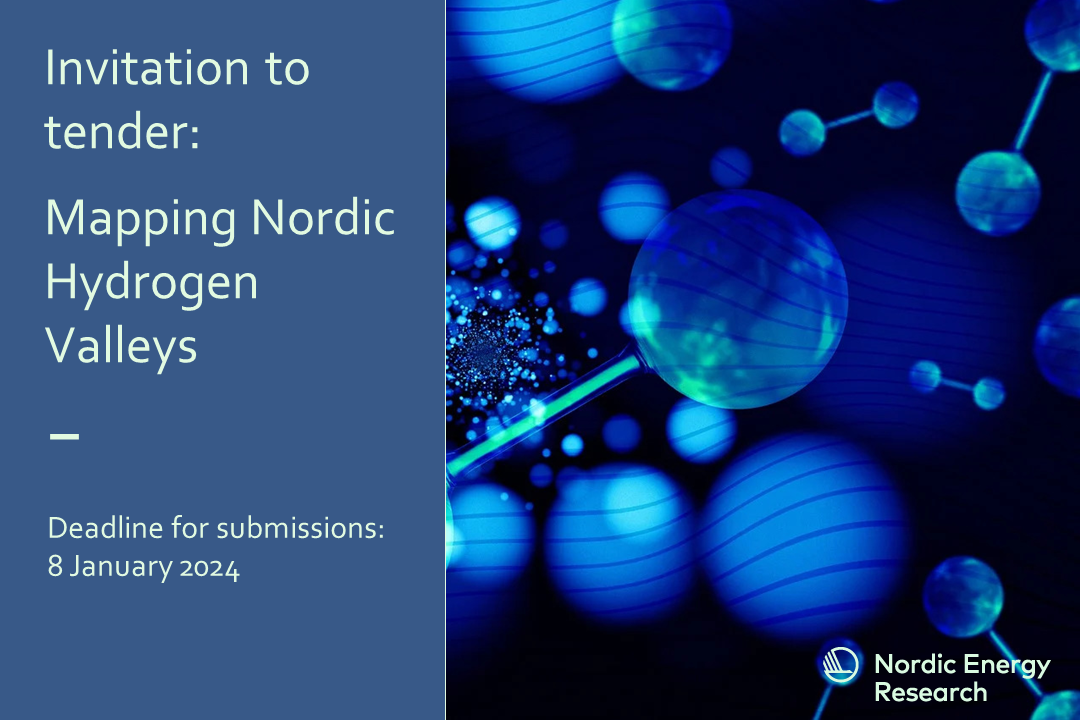
Nordic Energy Research puts focus on Nordic Hydrogen Valleys
Nordic Energy Research is currently addressing the subject of hydrogen valleys through three topical activities. Hydrogen Valleys – the Nordic Rally to the Valley at COP28 On 5 December, the…
Nordic Energy Research is currently addressing the subject of hydrogen valleys through three topical activities.
Hydrogen Valleys – the Nordic Rally to the Valley at COP28
On 5 December, the Just Energy Transition Day at COP28, Nordic Energy Research hosted the event Hydrogen Valleys – the Nordic Rally to the Valley. At the event, Nordic frontrunners delved into how Nordic ways of cooperation, production and transportation can accelerate innovation and unlock the potential of clean hydrogen as a global energy solution.

After introductory speeches by Daniel Westlén, State Secretary to the Swedish Minister for Climate and the Environment, and Dolf Gielen, Senior Energy Economist and Hydrogen Lead, The World Bank, a panel discussion followed.
Catherine Raw, Managing Director at SSE Thermal, Ada Martine Jakobsen, CEO of NCE Maritime CleanTech, and Rikke Wetter Olufsen, Deputy Director General at the Danish Maritime Authority highlighted some of the important work on hydrogen in the Nordics and well as in the UK. They painted a complex but optimistic picture of the development of hydrogen, and all agreed on the importance of collaboration in the field.
“It’s important to share experiences and to learn from all our colleagues, both Nordic and from other countries, that are ahead of us. Good dialogue is the only way for us to find a common way – dialogue and knowledge sharing,” says Wetter Olufsen.
“I’m positive in what I’ve seen, but I do think that we need Nordic cooperation on top of national policies. I want to see bigger and bolder – you want very high precision, but you also need feedback loops of learning in order to move forward,” according to Jakobsen.
When it comes to cooperation, Raw also specified that there needs to be more collaboration on standardisation and definitions.
“To scale up hydrogen fast, we need to make sure that we’re in line with Europe and eventually globally, so that you don’t create barriers as to what is defined as low carbon hydrogen, in order to sell it and market it. It is happening, but not fast enough,” she says.
A recording of the event will soon be available – follow Nordic Energy Research on Linkedin to get the latest updates.
Read more about Nordic Energy Research’s programme at COP28 here.
Invitation to tender: Mapping Nordic Hydrogen Valleys
The tender Mapping Nordic Hydrogen Valleys is open for applications! Nordic Energy Research invites applicants to submit proposals that identify and map existing and coming hydrogen valleys in the Nordic region and develop a prototype digital tool for mapping Nordic hydrogen valleys. Also, the study will investigate the potential for using clean hydrogen and other fuels based on clean hydrogen in Arctic maritime transport.

The study is meant to support the development of Nordic hydrogen valleys, contribute to the exchange of experiences among Nordic stakeholders, and to promote and enhance the Nordic strengths within the Nordic hydrogen value chains.
Submission deadline is 8 January 2024 at 13:00 (CET).
Read the full tender text and apply on TED
Read the full tender text and apply on Doffin
Nordic Hydrogen Valleys as Energy Hubs
In 2023, the Nordic Hydrogen Valleys as Energy Hubs Programme was launched by Norway, Sweden, Denmark, Finland and Iceland. The programme is coordinated and co-funded by Nordic Energy Research with a total pot of 98 600 000 NOK, supporting five unique projects. The programme aims to help fast track how the Nordics can become a hub for hydrogen valleys by 2030 and 2040.

The Nordic countries’ commitment to the development of hydrogen value chains is a testament to the region’s ability to work together to achieve a higher level of value from working together than on a national level. The Nordic Hydrogen Valleys as Energy Hubs Programme will work on identifying key pathways and barriers to building hydrogen valleys in the Nordics, as well as demonstrating the use of hydrogen in the wider energy system.
The five projects kicked off a three-year period of joint collaborative research efforts with a Hydrogen Valley Conference in Reykjavik in October, serving as a Nordic venue for hydrogen research and development. The next Nordic Hydrogen Valleys Conference will be held in Luleå, Sweden in January 2025. These series of conferences will serve as the basis for a network of stakeholders who want to follow the Nordic’s path to developing hydrogen valleys.

